From Battlefields to Boardrooms: The Entrepreneurial Journey of Veterans
As fewer veterans start businesses, questions arise around the nature of startups and the challenges former service members face to grow a company.
“Veteran ownership declined from 11.0% of businesses in 2014 to 8.1% in 2020,” stated a document by the Small Business Administration, a federal government agency.
Jeremy Becker, CEO of Becker Digital, a consulting, marketing and training company he started after retiring from active service, touted the benefits of business ownership. “It kind of gives me a sense of freedom and autonomy.”
Becker is a former U.S. Army combat engineer who led route clearance teams south of Kabul, Afghanistan. His platoon ensured there were no explosives along the roads in his area. He retired in 2015 as a captain with a medical disability after serving for eight years and earning a Bronze Star; this allows his small business to be certified with the service-disabled status.
The law recognizes two distinct types of veteran-owned companies. The difference lies in a subtype with more than half of its stock in the hands of service-disabled owners. The law does not establish a minimum or maximum disability level; therefore, if at least 51% of a company is headed by a former service member with a disability above 0%, the company can qualify in this subcategory.
One benefit of this subtype is that U.S. federal law mandates that at least 3% of total government contract awards be reserved for service-disabled veteran-owned small businesses.
Additionally, 70% of Americans prefer to do business with these companies, according to the National Veteran-Owned Business Association.
For Becker, this data is a source of optimism, but he remains cautious. He told SIGNAL Media that he finances his growth with profits and is careful not to take capital that may dilute his ownership to the point where he could potentially lose the status as a service-disabled veteran business.
In 2015, Becker retired from the Army and started his company. His best support still comes from the military, but it is less formal than the mandates from agencies and departments.
“A lot of my peers, folks I have served with, whether they’re my former commanders, they did 20 years and they’re getting out. We’re kind of all starting at the same place, so our network, when–you–first-get-out-the-military network, if you’re trying to start your own business, can be kind of like, horizontal,” Becker said.
The former Army officer added a positive spin to his new life, starting fresh a few decades after completing his education.
“We’re at the same place, so they don’t know any more than I know, and then we’re all in this same little group. ... I feel like we’re just getting out of college again,” Becker explained, suggesting how comradery also translates into entrepreneurial civilian life.
Small businesses are at the forefront of the Department of Defense (DoD) acquisition strategy. Earlier this year, the Small Business Strategy stated that “expanding [small business] participation will keep DoD at the forefront of innovation, while simultaneously fostering increased competition that can reduce costs for high quality capabilities. It will also ensure that the Department continues to leverage the untapped potential of disadvantaged-, women-, and veteran-owned small businesses that have historically been underutilized.”
Qualifying companies gain access to funding, mentorship and accelerated purchase processes, among other benefits.
“There’s really three major prongs to our small business strategy: one is creating a more unified management structure for small business programs; two is aligning our small business initiatives and activities with national security priorities; and three is providing more resources and support to small businesses,” said Farooq A. Mitha, director of the Office of Small Business Programs, U.S. DoD, at a recent AFCEA Northern Virginia Chapter event.
This office offers centralized information and provides advice for companies looking to obtain support and supply goods and services to the DoD.
Another program is in the planning phase. It aims to support businesses that develop new capabilities and have limited resources to cross the “Valley of Death.” This expression describes the headwinds innovations battle from idea to contract. One common case is when new companies with shallow financial pools are out of business by the time the DoD completes processing the first order.
For this, Mitha’s office wants to bring back the Rapid Innovation Fund, or RIF. This program was focused on companies that wanted to take prototypes into production.
“When you’re a small business, and you have a [Small Business Innovation Research grant], for example, when you go to commercialize your technology, it’s not always 100% ready, so the RIF program helps you continue to develop the technology to be customized,” Mitha told SIGNAL Media in an interview.
Between 2011 and 2016, 57% of awardees transitioned their offerings to military use or were expected to succeed. This means that a majority of the small businesses that entered the program actually crossed the Valley of Death and obtained contracts with the DoD worth an aggregate $2.4 billion, according to the program’s own assessment.
One of the potential uses of a program like RIF is to extend the life of a business that sees other development funding sources expire before being able to deliver.
“It’s also helpful to buy down acquisition life-cycle timelines. For example, my [Small Business Innovation Research grant] ends, the Army says they want my capability, but they are not going to buy it for another two years because of their acquisition process, so RIF helps us bridge that gap as well,” Mitha said.
The program is currently unavailable, but one of the goals of his tenure at the office is reopening this program, Mitha stated at the AFCEA Northern Virginia Chapter event.
Finding the right program in the Small Business Association and within the DoD may demand hard research work. And, in many cases like these, military experience applied to the business world may go a long way.
“I think in the military, especially in my line of work, you’re always expected to do more with way less. When you come up with a plan and a strategy, you need all this stuff, and you might get 10 or 20% of what you actually need, and you figure out a way to successfully accomplish the mission,” Becker said.
Becker told SIGNAL Media that his business operates across services and states, and he manages it partnered with his wife, Hannah Becker.
Starting a business is stressful, but Becker also said he found his shared successes especially rewarding. Still, one of his most important management lessons came from his time in uniform: “Think first, panic later,” he said. Certainly, a handy lesson while defusing improvised explosive devices in Afghanistan.
In Becker’s current life as a businessman, collaborating with military services and expanding technology capabilities, he traded the extreme adrenaline of his days in uniform for a steady supply of endorphins—and some metaphorical lactic acid.
“It’s a long hill to climb, but I wake up every day and I’m like, ‘This is great,’” Becker said.
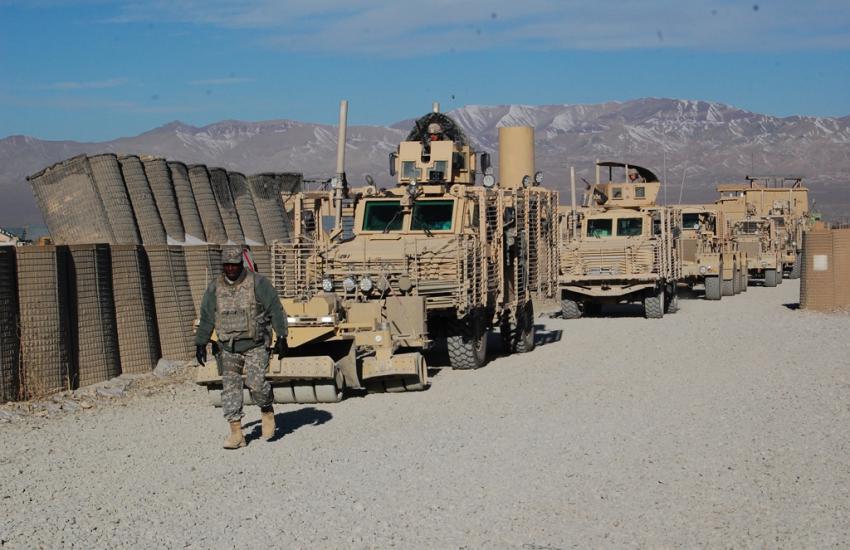
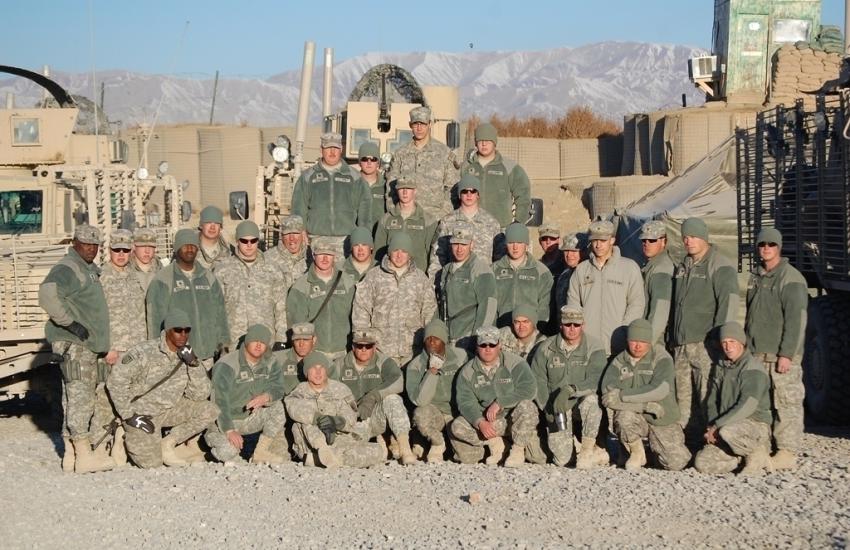
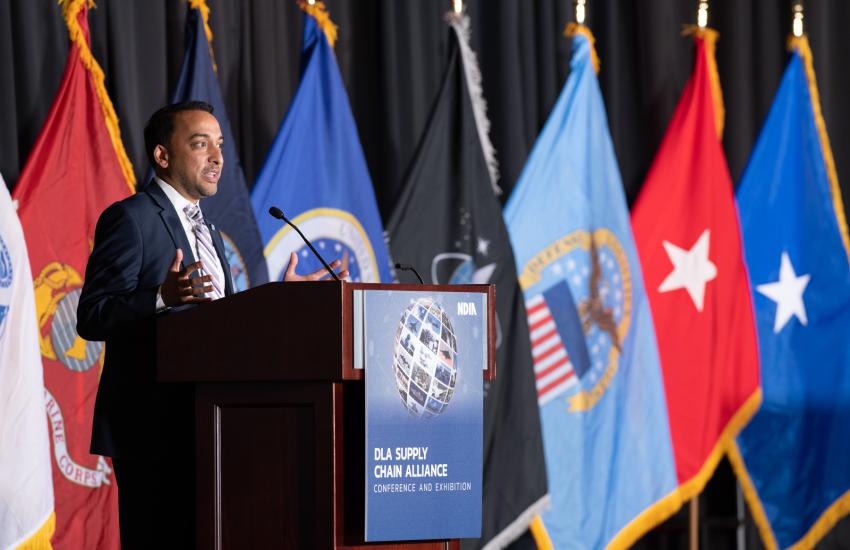
Is It a True Veteran-owned Business?
The Small Business Administration (SBA) runs a directory to confirm a company’s veteran ownership.
To be truly considered veteran-owned, a company must meet these three requirements:
- Have at least a 51% veteran ownership
- Be registered as a small business in SAM.gov
- Be a small business according to SBA standards
Ownership is straightforward, but it should be noted that investments may dilute ownership, leaving out the business entity.
Registration as a small business in the System for Award Management, or SAM, allows the company to receive funds from the federal government. These funds could come from business contracts or grants. It could take up to seven weeks to be approved, according to its website.
SBA small business standards vary according to business sector, location and other factors. Therefore, each company should consult the updated criteria.
Still, when a company complies, it joins a public and searchable directory to accredit its status.
The Navy’s Special Program
The Information Warfare Research Project (IWRP) Consortium engages industry and academia to develop technologies for Navy and Marine Corps information warfare. This program’s primary interests are cyber, cloud, autonomy and artificial intelligence, among the 15 areas it covers.
“IWRP is a streamlined acquisition tool that was established in 2018, designed to streamline the acquisition process, rapidly develop prototypes and provide advanced technologies to the fleet; it has a specific purpose to leverage the concentration, by that I mean the breadth and depth of technology engaged across the information warfare domain,” said Jee Youn Fickling, program manager at the Naval Information Warfare Center Atlantic.
Businesses and academia can join the network. Companies that are not military contractors are encouraged to join. The program takes prototypes and funds their development, pooling resources together.
“We have prototype project opportunities that are advertised to the consortium members,” Fickling said.
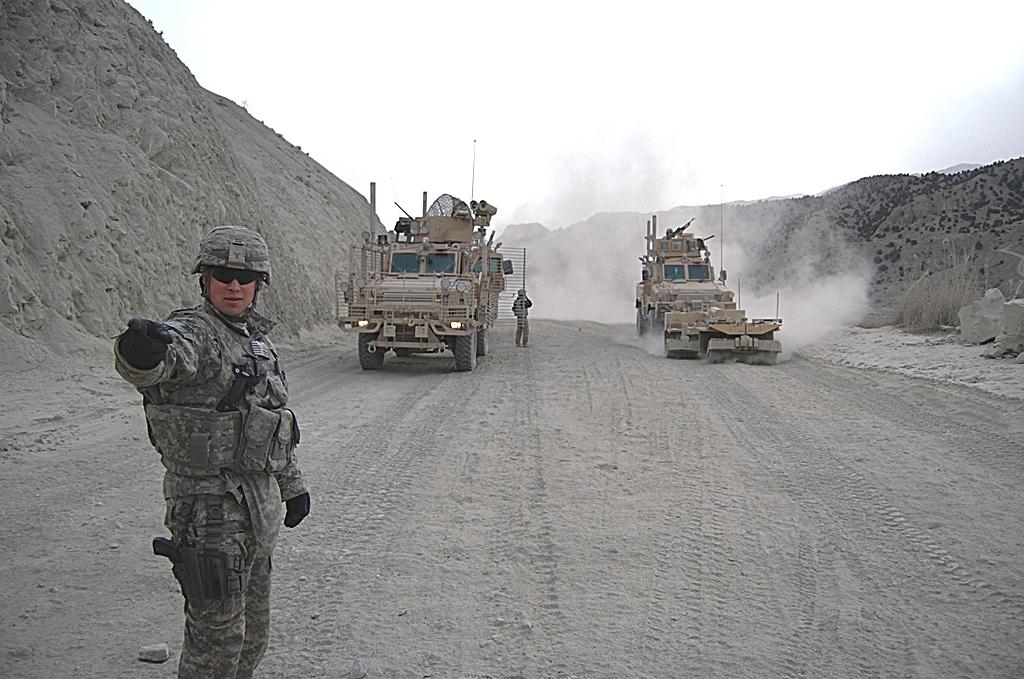


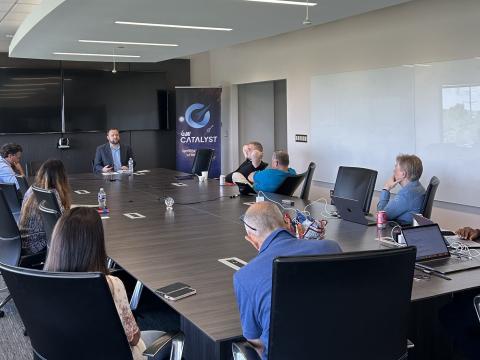
Comments